Four Involved In Iran-Sponsored Abduction Plot In Turkey Released
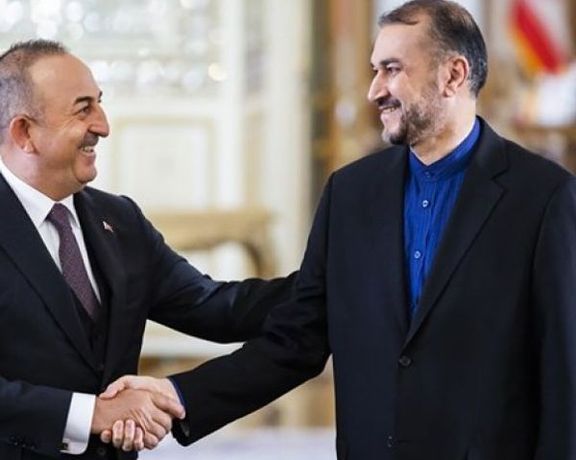
Four people, detained in Turkey on charges of abducting opponents of the Islamic Republic on Turkish soil, have been released after negotiations of the two countries in Ankara.

Four people, detained in Turkey on charges of abducting opponents of the Islamic Republic on Turkish soil, have been released after negotiations of the two countries in Ankara.
The release of prisoners came following the visit of Iranian Foreign Minister Hossein Amir-Abdollahian to Turkey this week.
The four were arrested last year on charges of complicity with the security organizations of the Islamic Republic to kidnap an opponent of the regime in Turkey.
On Tuesday, a Turkish court ordered them released on condition of being banned from leaving the country.
Morteza Soltan-Sanjari, the only Iranian prisoner in this case, was transferred to prison until the next trial.
In February 2022, Turkish Intelligence announced that it had arrested members of a team affiliated with the Islamic Republic who had organized several kidnappings.
According to Turkish media, the team that organized the kidnappings included a Turkish state prosecutor, the owner of a defense company, a retired Turkish army colonel, and several non-commissioned officers.
Oda TV, an online news portal, claimed the target of the kidnappers were Moahammad Rezaie and Shahnam Golshani, both opponents of the Iranian regime.
This is not the first time Iranian regime agents try to kidnap and kill its opponents in Turkey. In 2021, Turkey released Mohammad Reza Naserzadeh, who had been arrested by Turkish intelligence in connection with the killing of Masoud Molavi, a former Iranian defense official, in Istanbul in 2019.
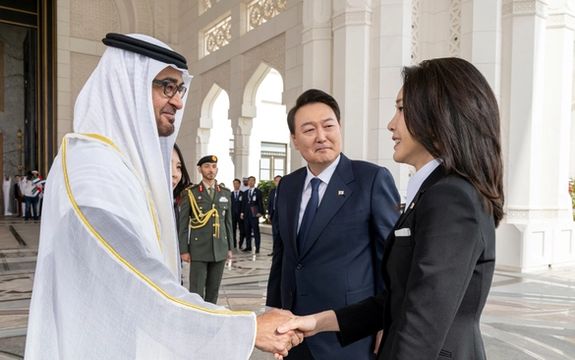
Tehran and Seoul have summoned each other's ambassadors over President Yoon Suk-yeol's comment that the Islamic Republic is the enemy of the United Arab Emirates (UAE).
Yoon, speaking with South Korean troops stationed in Abu Dhabi early this week, said South Korea and the UAE are under "very similar" circumstances, each facing North Korea and Iran as "the enemy, biggest threat."
His remarks prompted a rare spat between Seoul and Tehran, at a time when relations have already been testy over frozen Iranian funds in South Korea and suspected arms dealings between Iran and North Korea.
Iran's deputy foreign minister on legal affairs, Reza Najafi, summoned Yun Kang-hyeon, the South Korean ambassador on Wednesday to protest against Yoon's "interventionist remarks," the official IRNA news agency said.
Najafi "pointed to the deep-rooted and friendly relations of the Islamic Republic of Iran with most of the Persian Gulf countries," IRNA said, describing Yoon's comment as "interfering" and "undermining peace and stability in the region."
South Korea's foreign ministry retaliated on Thursday by calling in Iran's ambassador to Seoul to explain President Yoon Suk Yeol's remarks as words of "encouragement" to the troops.
The incident came after a similar unfriendly gesture by China’s President XI Jinping in December during his visit to Saudi Arabia. After he met with the Gulf Cooperation Council, a joint statement was issued in which China endorsed UAE’s claims on three Iranian islands in the Persian Gulf.
This led to serious controversy in Iran, where critics slammed the government for its weakness to allow China, which is touted as an ally, to support an anti-Iranian resolution.
A similar situation emerged with Shia-dominated Iraq, where the prime minister used the term “Arabian Gulf” for the Persian Gulf angering Iranians.
The cumulative impact of these incidents, pundits in Iran argued, shows Tehran’s growing isolation and loss of diplomatic leverage.
Yoon's office said his comment was meant to encourage the soldiers. Seoul's foreign ministry said on Tuesday it has offered explanations to Tehran and its commitment to developing bilateral ties remains unchanged.
Opposition lawmakers slammed the incident as a "diplomatic disaster," and some members of Yoon's own party also said he should have been more careful.
Najafi also accused South Korea of pursuing an "unfriendly approach" toward Iran, singling out its frozen funds.
"South Korea's failure to take effective action to solve the mentioned problems would lead Iran to review its relations," Najafi said, according to IRNA.
Iran has repeatedly demanded the release of some $7 billion of its funds frozen in South Korean banks under US sanctions.
Washington re-imposed sanctions on Tehran in 2018 after then President Donald Trump pulled out from Iran's 2015 nuclear accord with six major powers, under which it agreed to curb its nuclear programmes in return for UN-imposed sanctions relief.
South Korea was once one of Iran's biggest crude buyers in Asia, and both sides have been in talks over ways to unfreeze the funds and resume oil trade, after negotiations to revive the 2015 deal kicked off in 2021. However, the talks stalled in September and meanwhile tensions grew between Iran and Western powers over its deadly crackdown on protesters and delivery of killer drones to Russia.
With reporting by Reuters
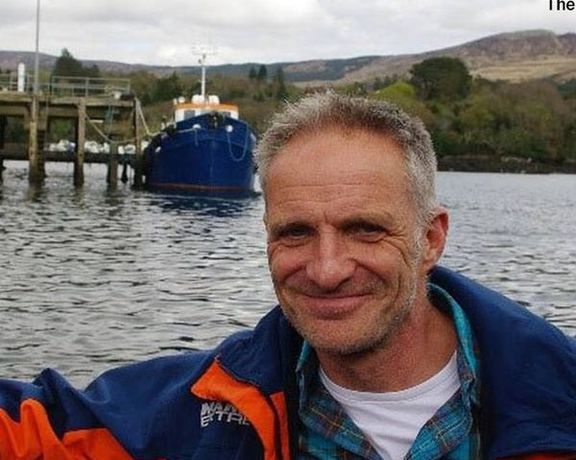
A French diplomatic source says the health condition of the Irish-French prisoner Bernard Phelan, who is behind bars in Iran, is deteriorating.
Bernard Phelan was arrested on October 3 during anti-regime protests that have swept the country following the death of Mahsa Amini in police custody on September 16.
His family says he has been on hunger strike since the beginning of the New Year and has even stopped taking medication for a heart condition. He is also refusing water.
Bernard Phelan, 64, who is a travel consultant has been accused by the Islamic Republic of "propaganda against the establishment" and "photographing police and security officers". He is imprisoned in Vakil Abad prison in Mashhad northeast of Iran.
"He is showing serious signs of physical and psychological exhaustion" added the official, saying despite repeated requests of the governments of France and the Republic of Ireland to release him for medical reasons, the Islamic Republic has refused to do so.
Phelan’s sister, Caroline Masse-Phelan, told AFP Wednesday that her brother was an innocent man detained for reasons "beyond our comprehension."
She said his health condition meant he had to be released urgently.
"It's a matter of days. He's an innocent man caught in the middle of I don't know what. He loves Iran, he is 64, sick, and wants to go home," she said.
"I think he is part of a group of Europeans imprisoned for political reasons ... of which I know nothing," his sister added. "We have nothing to do with this story."
Several foreigners visiting Iran have disappeared during the nationwide protests, confirming earlier reports that the Islamic Republic is taking foreign citizens hostage.

Iran warned the European Union on Thursday against listing the Revolutionary Guard (IRGC) as a terrorist entity, amid a strong push by European politicians.
Foreign Minister Hossein Amir-Abdollahian told the EU's High Representative for Foreign Affairs Josep Borrell that the EU will "shoot itself in the foot" state media said.
"We have repeatedly said the Revolutionary Guards are a formal and sovereign organization whose role is central for guaranteeing Iran's security. Steps taken by the European Parliament to list the organization as terrorist are in a way a shot in the foot of Europe itself," Iran's foreign minister said.
On Wednesday the European Parliament in an overwhelming vote called for the EU to list the Revolutionary Guard as a terrorist organization, blaming it for the repression of domestic protesters and the supply of kamikaze drones to Russia's military, which uses it to attack Ukraine’s civilian infrastructure.
While the regime in Tehran insists that the IRGC is the country’s formal military organization and should be immune from sanctions by other states, the entity engages in widespread unconventional activities, such as domestic repression and foreign interferences in region countries. It maintains a domestic intelligence organization and prisons for dissidents, as well as engages in torture and other human rights violations.
Widespread anti-government demonstrations erupted in Iran in September after the death of Kurdish Iranian woman Mahsa Amini, who had been detained over flouting the strict dress code imposed on women.
The European Parliament condemned the crackdown on protesters by Iran's security forces, led by the powerful Revolutionary Guard Corps, as "brutal".
These security and intelligence forces have killed around 500 civilians during the protests, maimed hundreds of other, jailed thousands and executed for detainees.
Both the resilience of the protest movement and the strong foreign reactions to government brutality have posed the most serious challenge to the clerical regime in Iran since its establishment in 1979.
The US State Department Wednesday refused to comment on specific steps by the EU, but spokesperson Ned Price told reporters, “What – where we do see eye to eye with our European partners is a recognition that Iran is the world’s leading sponsor of terrorism. There is no more nefarious exporter of international terrorism than Iran. There is no disagreement between the United States and our European allies on this.”
"It is necessary to respect mutual security in the world of diplomacy and increase mutual trust instead of following the language of threats and unfriendly actions. In any case of a terrorist listing, Iran will take reciprocal measures," Amir-Abdollahian said.
The foreign minister’s remarks contradict the behavior of Islamic Republic officials who for decades have threatened the West, Israel and some Arab regional countries.
Iran and world powers, including EU members France and Germany, have engaged in negotiations since 2021 to revive a 2015 nuclear deal, with discussions in a stalemate since September.
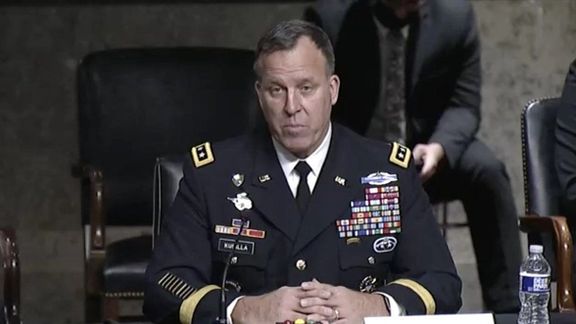
Michael Erik Kurilla, the head of the US Central Command (CENTCOM) visited Israel this week to meet with the new Chief of General Staff of Israeli military Lt. Gen. Herzi Halevi.
During a visit on January 16 and 17, Kurilla spoke with the new IDF commander about regional threats, opportunities to strengthen the bilateral military relationship, and upcoming training exercises between CENTCOM forces and the IDF, read a statement released on Wednesday.
Kurilla also thanked Lt. Gen. Aviv Kochavi, the outgoing IDF Chief of General Staff, for his leadership and commitment to the CENTCOM-IDF partnership. The transition of Israel from the US European Command (EUCOM) area of responsibility to that of US Central Command occurred during Kochavi’s tenure. “He quickly established the foundation for a strong, abiding relationship between the IDF and CENTCOM,” the statement added.
Kurilla also met with Defense Minister Yoav Gallant at the ministry headquarters, where they discussed the importance of deepening defense and technological cooperation between their respective militaries.
Minister Gallant expressed Israel’s commitment to expand ties with CENTCOM amid ongoing attacks by Iran and its terrorist proxies on sovereign nations – such as Lebanon’s Hezbollah against Israel or the Houthi movement in Yemen on Saudi Arabia and the United Arab Emirates – as part of the Islamic Republic’s efforts to destabilize the region.
CENTCOM’s head also visited the Israel Air Force headquarters and Air Operations Center where IAF leadership presented him with detailed briefings, demonstrations of IAF capabilities and advancements, updates on regional threats and opportunities, and an overview of integrated air and missile defense.
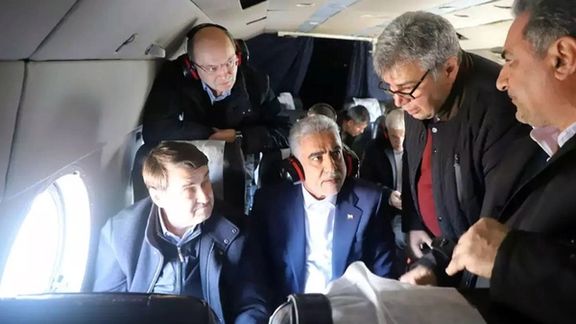
A helicopter carrying the Russian president’s aide landed on a football field in the northern city of Astara in Iran just before a game was scheduled to start.
Mehr news agency claimed Wednesday that this was due to "security issues" which caused a 40-minute delay in the match that was supposed to be held in the stadium.
The report adds that Igor Levitin along with the governor of Iran’s Gilan province, the deputy minister of roads and Astara's MP were onboard the chopper headed to Astara to launch a railway project between Iran and Russia, but their copter suddenly landed in the stadium.
Iranian media have reported that half an hour before the start of the match, helicopters landed without any prior notice.
The claim of the presence of Putin's aide to launch the railway comes as the construction of this project has been delayed for over two decades and has not even kicked off yet.
The railway is supposed to connect Rasht in northern Iran to Astara and from there to the railway of the Azerbaijan Republic which is already connected to Russia. Iranian officials have recently announced they have begun negotiations with Moscow to develop the project.
IRNA news agency reported Wednesday that the most important achievement of Levitin’s trip to Iran so far has been the confirmation of Russia's participation in the rail project.
Russia has not yet officially announced whether it will participate in this one-billion-dollar project.